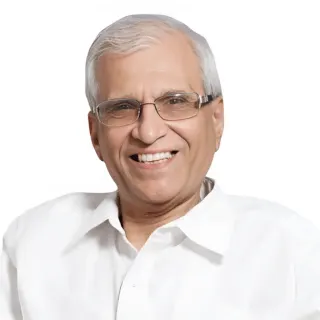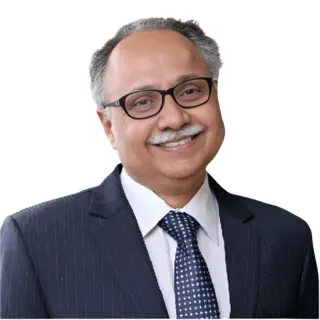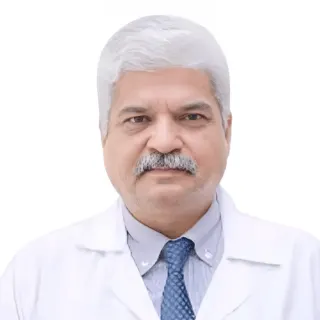Best Cardiologists in Artemis Hospital Gurgaon
 10 December,2025
Read More
10 December,2025
Read More
Starting From: USD 1800-5400
Procedure Type: Medical Management
Hospitalization Days: - Days
Procedure Duration: 1-3 Hrs
Success Rate: 70%
Immunotherapy is an advanced cancer treatment that enhances the immune system's ability to target and destroy cancer cells. The immunotherapy treatment package cost in India typically ranges from USD 4,000 to 5,500 per cycle, making it a cost-effective option compared to Western countries. Prices vary depending on the drug used, the type of cancer, the hospital, and the treatment duration. Affordable immunotherapy in India is offered by globally recognized oncologists, with access to modern infrastructure and combination therapy protocols.
Immunotherapy is an advanced form of cancer treatment that uses the body’s immune system to fight cancer. It enhances or modifies the immune response to target and destroy cancer cells. The immunotherapy treatment cost in India depends on the drug used, cancer type, and hospital setup.
Types of immunotherapy include:
India offers cost-effective options for most of these, making it a hub for patients seeking affordable immunotherapy in India.
The immunotherapy cost in India varies depending on the cancer type, specific drug used (e.g., Nivolumab, Pembrolizumab, Atezolizumab), treatment cycles, hospital type, and oncologist expertise:
Here are some of the factors affecting immunotherapy cost in India:
|
City |
Cost in INR |
Cost in USD (Approx.) |
|
Mumbai |
INR 1,60,000 – INR 4,20,000 |
USD 1,900 – USD 5,000 |
|
Delhi |
INR 1,50,000 – INR 4,00,000 |
USD 1,785 – USD 4,760 |
|
Bengaluru |
INR 1,40,000 – INR 3,80,000 |
USD 1,665 – USD 4,520 |
|
Chennai |
INR 1,30,000 – INR 3,70,000 |
USD 1,550 – USD 4,400 |
|
Kolkata |
INR 1,20,000 – INR 3,50,000 |
USD 1,430 – USD 4,165 |
|
Country |
Approx. Cost Range (USD) |
|
India |
USD 1,800 – USD 5,400 |
|
Turkey |
USD 1,500 – USD 3,000 |
|
Thailand |
USD 1,200 – USD 2,800 |
|
Germany |
USD 10,000 – USD 12,800 |
|
USA |
USD 1,50,000 – USD 1,65,000 |
India offers affordable immunotherapy with international-standard care, making it an ideal destination for medical tourists seeking high-quality treatment.
Note: Hospital Readmissions due to infections or side effects can significantly increase overall expenses.
Most Indian insurers now cover immunotherapy treatment costs under comprehensive oncology plans. Patients should confirm:
Several hospitals offer EMI options, sometimes at zero interest, especially for treatments exceeding INR 5 Lakhs (approximately USD 6,000).
MediJourney connects patients with India’s top oncology centers offering personalized immunotherapy care for a wide range of cancers. Our services are designed to make the immunotherapy cost in India transparent, predictable, and accessible.
We provide:
MediJourney helps patients understand the immunotherapy treatment cost in India, compare the immunotherapy price in India, and explore the immunotherapy treatment package cost in India. All care plans are tailored to individual needs, with clarity on the factors that affect immunotherapy costs in India, to support better decision-making.
Answer: The type of drug is a major cost factor. For instance, Nivolumab and Pembrolizumab are more expensive than monoclonal antibodies or vaccines. Branded imports cost more than generics.
Answer: Combination therapy can cost between INR 1,30,000 and 4,50,000 (USD 1,800 – 5,400), depending on cancer type, drugs used, and duration.
Answer: Immune-related adverse events can lead to hospital stays, costing INR 50,000 – 3,00,000 (USD 600 – 3,600). Patients may need immunosuppressants and ICU care.
Answer: Yes, major cancer hospitals and research institutes offer clinical trials. Costs are often minimal or free, but eligibility and access depend on the type, stage, and profile of the patient's cancer.

Senior Consultant
Medical Oncologist
Nanavati Super Specialty Hospital, Mumbai

Chairman
Surgical Oncologist
Max Super Speciality Hospital, Saket, New Delhi

Senior Director
Surgical Oncologist
Kokilaben Dhirubhai Ambani Hospital, Mumbai & Medical Research Institute

Senior Director
Surgical Oncologist
Fortis Hospital, Bannerghatta Road, Bangalore

Vice Chairman
Robotic Surgeon, Surgical Oncologist
BLK-Max Super Speciality Hospital, New Delhi

Associate Director
Hemato-Oncologist, Medical Oncologist
Medanta - The Medicity Hospital, Gurgaon
Doctor of Pharmacy
Dr. Deepanshu Siwach is a skilled clinical pharmacist with a Doctor of Pharmacy degree.?He has 4+?years of experience and has worked with thousands of patients. He has been associated with some of the top hospitals, such as Artemis Gurgaon.
Dr. Deepanshu Siwach is a skilled clinical pharmacist with a Doctor of Pharmacy degree.?He has 4+?years of experience and has worked with thousands of patients. He has been associated with some of the top hospitals, such as Artemis Gurgaon....
Senior Director
Medical Oncologist
Dr. Sajjan Rajpurohit is a leading medical oncologist in New Delhi. With over 22 years of experience in cancer treatment, he has performed more than 15,000 immunotherapy cycles. His specializations include immunotherapy, targeted therapy, and chemotherapy for solid tumors (breast, lung, gastrointestinal, genitourinary, head and neck, and sarcoma)....
The Art of Effective Communication
 10 December,2025
Read More
10 December,2025
Read More
 09 December,2025
Read More
09 December,2025
Read More
 05 December,2025
Read More
05 December,2025
Read More
 04 December,2025
Read More
04 December,2025
Read More
 27 November,2025
Read More
27 November,2025
Read More
 25 November,2025
Read More
25 November,2025
Read More